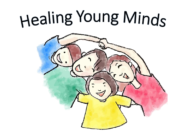School holidays, including the transition to the holidays and then back to school again, can be tough for children on the spectrum. The disruption in their routine and the far less structured days can be difficult to negotiate. Triggers to meltdowns are likely to occur more frequently during the holidays. These can include changes to routine/plans, sensory over/under-stimulation, social overload, too many demands being placed on the child at once, and difficulty expressing themselves leading to frustration with not having their needs met. Sensory overload and the resulting anxiety can spike in the summer months for children who are sensitive to bright light, insects, summer heat, beach sand and water, sun creams etc. Avoiding triggers to meltdowns is always better than trying to manage a meltdown once it starts, but this can be more challenging during the holidays particularly during periods away from home where the child may not have access to their familiar comfort objects or safe spaces.
However, with a bit of preparation and planning in advance, you can take some of the stress out and help your child cope better with the changes the holidays bring.
1. Prepare
Start preparing a calendar with planned events, days out, holidays abroad or staycations. The less busy it looks the less anxiety it will trigger. It can include quiet time or time for ‘doing nothing’ or ‘playing your games’. Use visual supports and make it as clear as possible with timings for all events.
2. Be Visual with your ASD child
If you’re travelling abroad show your child pictures of where you’ll be staying and a visual timetable of activities you will be doing and places you will visit. If your child is anxious about the flight, it may help to show them photos of the airport or pictures online and watch take-off and landing videos and listen to an audio of what the plane sounds like.
3. Use Stories
Use social stories to prepare your child for new or unfamiliar situations they find themselves in. You can make these up yourself or use the ones available online.
4. Talk to a Child Psychiatrist
If necessary, talk to your doctor or to a Child Psychiatrist about medication options to help your child with sleep disturbance caused by travelling and/or to help them cope better with the flying experience.
Please feel free to click here to contact our clinic and book an appointment with one of our specialist psychiatrists.
5. Reward Your Child
Consider your child’s special interests and give rewards for trying something new while on holiday such as new foods or trying a new activity or visiting a new place.
6. Keep a Routine
If possible, try to keep one basic daily routine such as the same evening mealtime and/or bedtime routine or bath time.
7. Get Ready for Increased Sensitivities
Be aware of increased sensory sensitivities and make simple adjustments or offer solutions such as sunglasses or fragrance-free sunscreen.
8. Keep Calm
Sometimes, no matter how hard you try, anxiety will get the better of your child or you will face a situation you hadn’t planned for. Try not to worry and to keep calm and remember that your child will sense your anxiety, and this will make theirs worse. Every child is different, and you know your child best. If you have strategies that have worked in the past, try them. Try to be understanding and resist the temptation to tell your child to calm down. Instead, tell them how to calm down or provide them with the means to calm down if possible, such as alone time in a safe space or stress objects.
9. Look After Yourself
Last but not least, look after yourself! Parents of children with ASD tend to have elevated stress levels during school holidays in particular. Take breaks, use support networks and parent forums, and give yourself the credit you deserve!

